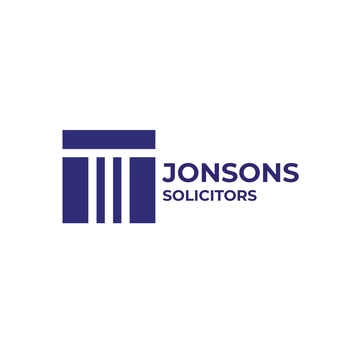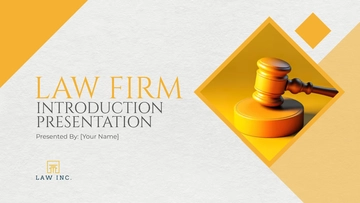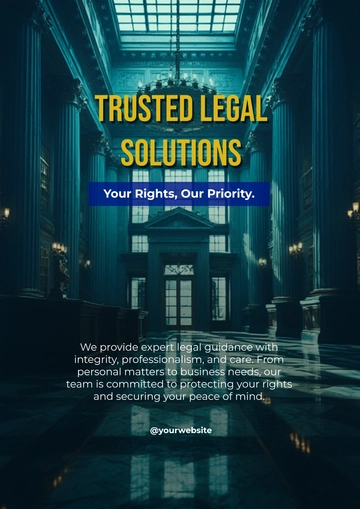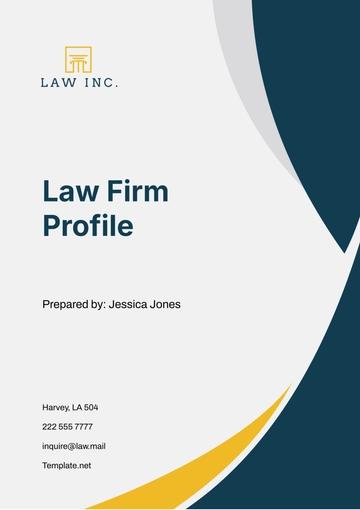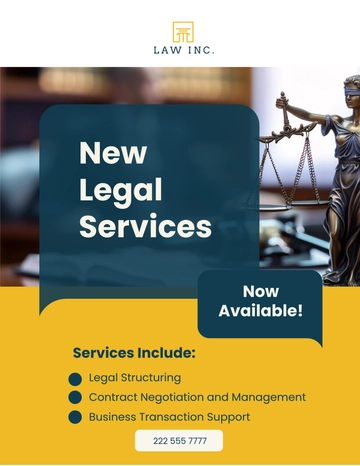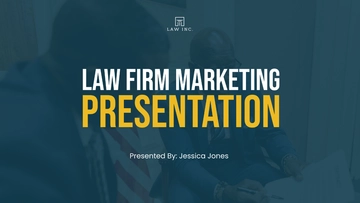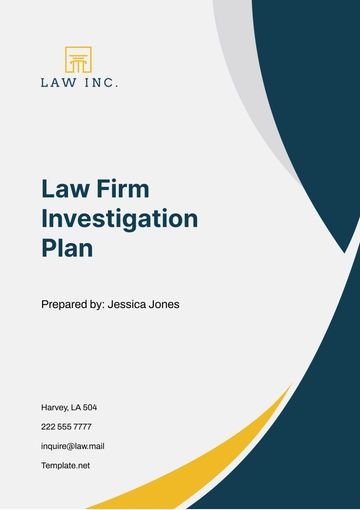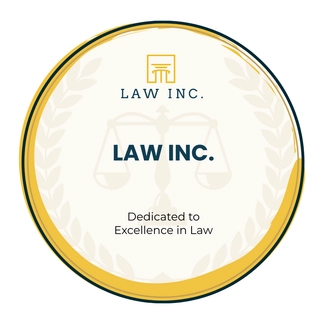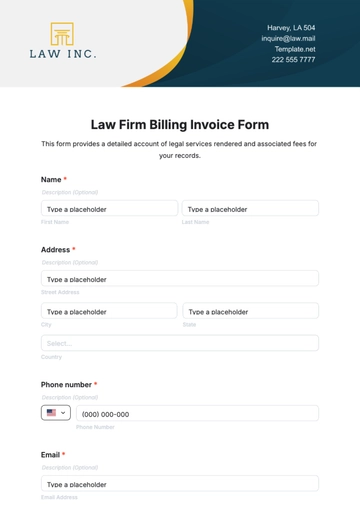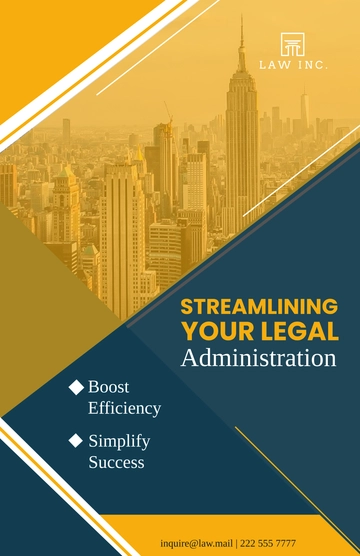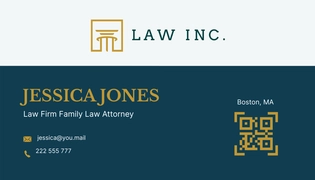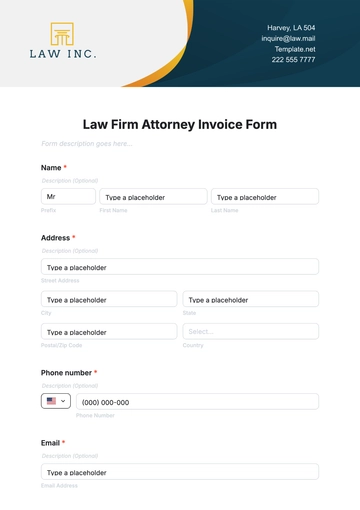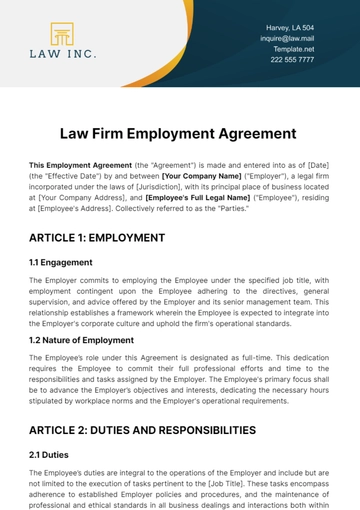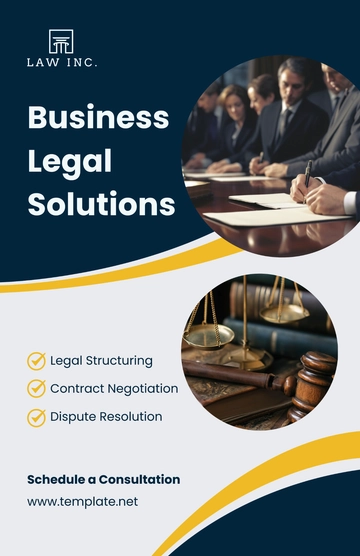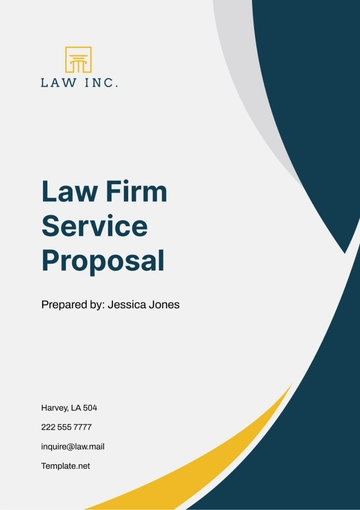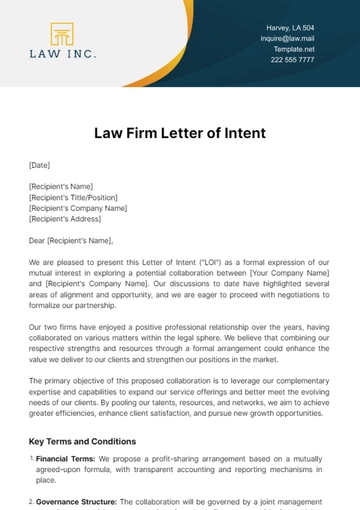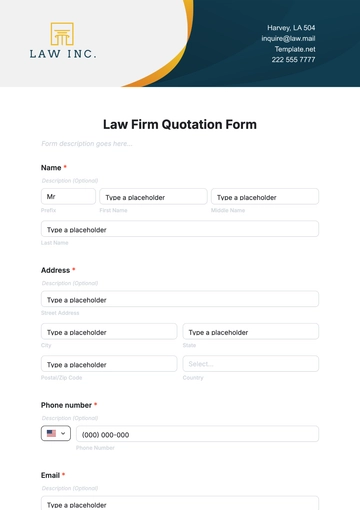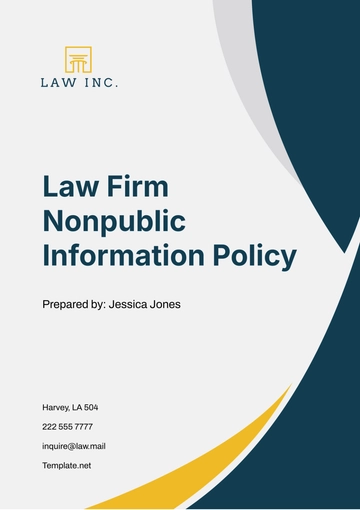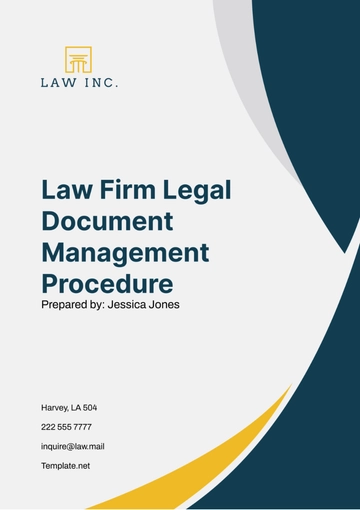Free Law Firm Diversity, Equity, and Inclusion (DEI) Guide
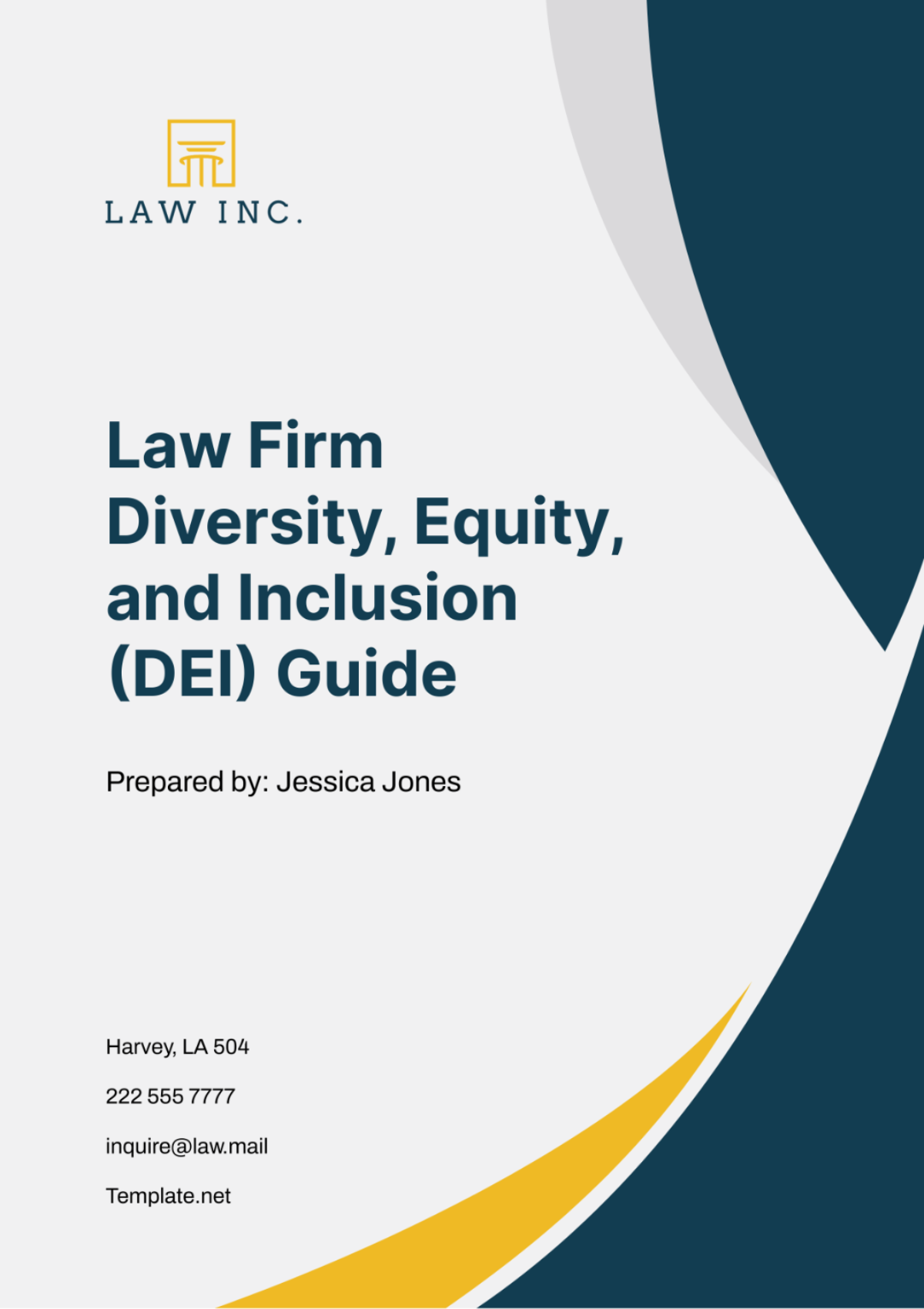
I. Introduction
The purpose of this Diversity, Equity, and Inclusion (DEI) Guide is to outline our firm's commitment to creating and nurturing an inclusive environment that respects and values diverse backgrounds and perspectives. We recognize that diversity is a critical asset to our firm’s success and innovation. This guide provides a framework for our efforts to ensure that all aspects of our employment, from hiring practices to professional development and leadership opportunities, are conducted with a focus on equity and inclusiveness. It covers policies, practices, and initiatives that promote diversity in our workforce, workplace culture, and the broader community with which we engage.
II. DEI Policy Statement
We are committed to fostering a diverse, inclusive, and equitable workplace where all employees feel valued and have the opportunity to excel. Our DEI policy is rooted in the belief that diversity enriches our performance, the services we provide, and the lives of our employees. We aim to create a workplace that reflects the diversity of the communities we serve and where everyone has access to opportunities for personal and professional growth. Our goals include:
Increasing Representation: Actively working to increase the representation of historically underrepresented groups at all levels of our firm.
Promoting Inclusion: Cultivating an inclusive environment that encourages collaboration and innovation.
Ensuring Equity: Implementing fair practices that ensure all employees have access to the same opportunities.
Sustaining Engagement: Encouraging continuous engagement with DEI initiatives to promote lasting change.
III. Governance and Leadership
Effective governance is crucial for the implementation and success of our DEI initiatives. We have established a DEI Committee to oversee and guide our efforts. Below is a table outlining the roles and responsibilities of each member of the DEI Committee:
Role | Responsibilities |
|---|---|
Chairperson | Leads the committee, sets the agenda, and ensures DEI goals are met. |
DEI Officer | Responsible for day-to-day DEI activities and program implementation. |
HR Representative | Integrates DEI principles into recruitment, hiring, and HR practices. |
Communications Lead | Manages internal and external communications related to DEI. |
Employee Advocate | Acts as a liaison between staff and the committee to relay concerns and feedback. |
IV. Recruitment and Hiring Practices
A. Inclusive Job Descriptions
We strive to attract a diverse pool of candidates by ensuring our job descriptions are inclusive and welcoming to all. To achieve this, we adhere to the following guidelines:
Neutral Language: Use gender-neutral language and avoid terms that may convey a bias towards a particular group.
Essential Qualifications: Clearly define essential skills and qualifications, distinguishing them from desirable ones to avoid deterring potentially qualified candidates.
Inclusive Benefits: Highlight benefits such as flexible working arrangements, parental leave, and personal development programs that might appeal to a diverse applicant pool.
DEI Commitment: Explicitly state our commitment to diversity and inclusion in the job description to attract candidates who value these principles.
B. Bias-Free Recruitment Process
Our recruitment process is designed to minimize biases and ensure fairness and equity for all applicants. Our procedures include:
Structured Interviews: Utilize a consistent set of questions for all candidates to ensure comparability of evaluations.
Diverse Hiring Panels: Include diverse members in interview panels to reduce individual bias and provide varied perspectives.
Blind Recruitment Techniques: Implement blind recruitment practices where feasible, such as removing names and other identifying details from resumes.
Regular Training: Provide ongoing training for HR staff and hiring managers on unconscious bias and equitable hiring practices.
V. Professional Development
We believe that professional development is key to nurturing a diverse and inclusive workplace. We offer a range of training programs designed to support career advancement for all employees:
Program | Frequency | Duration |
|---|---|---|
Diversity Training Workshops | Annually | 2 days |
Leadership Development Courses | Biannually | 3 days |
Skills Enhancement Sessions | Quarterly | 1 day |
Inclusion Seminars | Biannually | 1 day |
In addition to these programs, we are committed to supporting our employees through structured mentorship and sponsorship initiatives. Our mentorship program pairs junior staff with more experienced colleagues to provide guidance, feedback, and support as they navigate their career paths. The sponsorship program goes a step further by actively promoting high-potential employees within and outside our firm, ensuring that they receive the necessary opportunities to progress into leadership roles. Both programs are crucial for developing a diverse group of future leaders and ensuring that all employees have the support they need to succeed.
VI. Workplace Culture
We understand that a truly inclusive workplace culture is built on daily interactions and the ongoing commitment of every team member. To this end, we are dedicated to implementing initiatives and activities that actively promote inclusivity across all levels of our firm:
Inclusive Meetings: Ensure that all meetings are conducted in a manner that allows everyone to voice their opinions freely, and that all ideas are respected and considered.
Social Inclusivity Events: Organize regular events that celebrate the diversity of our team and foster social interactions beyond work-related activities.
Inclusivity Training: Conduct regular training sessions designed to enhance understanding and respect for various cultural, generational, and gender perspectives within the firm.
Flexible Work Arrangements: Support flexible work arrangements that accommodate the diverse needs of our workforce, including parental responsibilities, religious practices, and disability accommodations.
VII. Accountability and Measurement
To track our progress towards achieving our DEI goals and to ensure transparency, we use specific metrics and set target values that reflect our commitment to continuous improvement:
Metric | Target Value |
|---|---|
Diversity of Leadership | 30% increase in underrepresented groups in leadership roles by 2025 |
Employee Satisfaction | 90% positive feedback on inclusivity in annual surveys |
Retention Rates of Diverse Employees | Increase retention by 15% by 2025 |
Participation in DEI Training | 100% employee participation annually |
Following the assessment of these metrics, we will report our DEI progress to all stakeholders, including firm leadership, employees, and external partners. This reporting will be conducted annually through a comprehensive DEI Report that outlines our achievements and areas for improvement. This report not only serves as an internal tool for reflection and planning but also as a statement of our commitment to external parties interested in our firm's efforts to foster a truly inclusive environment.
VIII. Client and Community Engagement
Our commitment to diversity, equity, and inclusion extends beyond our internal practices to how we interact with our clients and the community. We recognize the importance of reflecting our DEI values in every aspect of our client relationships and community activities. We will engage in the following ways:
Client Relationships: We will openly communicate our DEI commitments and initiatives as part of our value proposition to clients, ensuring they understand our firm’s dedication to inclusivity. We will also seek feedback from clients on how well we are meeting their expectations in this area.
Community Programs: Participate in and sponsor community events and programs that promote diversity and inclusion. This includes offering pro bono services to underserved populations and supporting local organizations working on social justice and equity issues.
Partnerships: Forge partnerships with other firms and businesses that share our commitment to DEI, collaborating on initiatives that amplify our impact on creating a more inclusive society.
IX. Continuous Learning and Improvement
DEI is a dynamic area that requires ongoing attention and adaptation. To ensure our DEI efforts remain effective and relevant, we will implement a continuous learning and improvement process:
Regular Reviews: Conduct semi-annual reviews of our DEI practices and policies to assess their effectiveness and identify areas for improvement. These reviews will be based on feedback from employees, clients, and community partners, as well as changes in legal and social standards.
Updating Procedures: Based on the outcomes of our reviews, we will update our procedures and policies to address any shortcomings and to incorporate new best practices and insights. This ensures that our DEI efforts evolve in response to new challenges and opportunities.
Feedback Mechanisms: Maintain open channels for feedback from all stakeholders, encouraging a culture of open communication and continuous feedback that drives our DEI initiatives forward.
- 100% Customizable, free editor
- Access 1 Million+ Templates, photo’s & graphics
- Download or share as a template
- Click and replace photos, graphics, text, backgrounds
- Resize, crop, AI write & more
- Access advanced editor
Enhance your firm's inclusivity with the Law Firm Diversity, Equity, and Inclusion (DEI) Guide Template from Template.net. This template is easily editable and customizable in our AI Editor tool, allowing you to develop and refine DEI policies tailored to your firm’s values and objectives, fostering a truly inclusive workplace.
